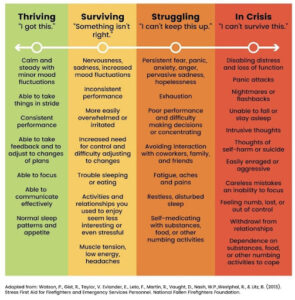The extra stressors and new changes in health care today have taken their toll on patients and clinicians alike, creating a weary workforce and a wary world.
The patient-clinician relationship is on shaky ground, but the relationship between patient and clinician satisfaction has stood firm. Happier clinicians equal happier patients. In order to get happier and more satisfied patients with better outcomes, clinicians must prioritize caring for themselves and finding happiness and fulfillment at work
The Emotional Bank Account
Each person has an “emotional bank” made up of spiritual, emotional, and physical well-being. Like our financial bank account, anytime withdrawals exceed deposits, the account goes into the red, resulting in burnout.
Pre-pandemic, the average burnout rate across specialties, physicians, and health care workers at large was around 50 percent. More recent data, from the Physician Foundation, shows that number is up to 61 percent.
Four stressors contribute to this rise in burnout rates and create a significant imbalance in our emotional bank: Inner conflict, traumatic stress, grief, and fatigue.
- Inner conflict occurs when we see or engage in behaviors that conflict with our values.
- Traumatic stress can include tragic clinical outcomes, negative colleague interactions, and COVID-19.
- Grief is a natural consequence of experiencing tragic clinical outcomes. Negative interactions with colleagues also contribute.
- Fatigue is most often the result of staffing issues, such as the physician and nursing shortage.
In her presentation on patient experience at the MLC21 medical leadership conference, SCP Health Senior Vice President and Group Medical Officer Noah Hoskins, MD, recommended that medical leaders take advantage of two evaluation methods to gauge the “prosperity” of their staff members’ emotional bank accounts: the Maslach Burnout Inventory (MBI) and the Stress First Aid (SFA) survey.
The MBI measures burnout as defined by the World Health Organization and ICD-11. The SFA survey, from the National Fallen Firefighters Foundation, initially designed for firefighters and emergency services personnel, measures whether a person is “thriving,” “surviving,” “struggling,” or “in crisis.” This chart illustrates:

How to Make Deposits in the Emotional Bank
How do we, as medical leaders, restore the emotional bank imbalance among our physicians and other frontline staff? By making the following five types of deposits.
Give Compliments
Complimenting clinicians may seem minor, but it makes a difference. We all want to be appreciated, and there’s no better way than by noticing and celebrating each other’s strengths.
“First and foremost, compliment each other,” advised SCP Health Executive Vice President and Chief Medical Officer of Emergency Medicine Ken Heinrich, MD, in his MLC21 leadership conference patient experience presentation, which he shared with Dr. Hoskins. “It may sound silly, but we forget to do it. When we’re stressed, when we’re in the moment dealing with all the chaos that’s happening in hospitals, we forget to take the time to give positive reinforcement to each other.”
Get Rest
Everyone is pushed to the limit these days. People are working more shifts than they would like and in the hospital more hours than ever. Therefore, medical leadership must ensure clinicians have sufficient time off to rest and recuperate.
“Some part of being an advocate for your clinicians means talking to the schedulers and saying, ‘Dr. Smith really needs some time. Do me a favor. No matter what happens. Don’t schedule Dr. Smith. Don’t even reach out to Dr. Smith to help cover that shift,’” Dr. Heinrich said. “That makes it difficult for our schedulers, but sometimes we need to do that. It’s part of advocating for our clinicians and, most importantly, for our patients.”
Provide Rewards and Recognition
Sometimes, going beyond a simple compliment is called for. Establishing an award and recognition program such as, SCP Health’s Encore program, allows leadership and staff to publicly recognize a colleague’s accomplishments.
Connect with Patients & Colleagues
One of the best ways clinicians can make emotional bank deposits is by pursuing meaningful connections with patients and sharing “mission moments” with colleagues.
“There are hospital systems that take the time at the beginning of meetings to share these ‘mission moments,’ these connections, can be small or even big things that we did through the course of our jobs that made a difference and made us feel good,” Dr. Heinrich said. “We should be sharing those with each other.”
Seek Help
Getting help and support is a fifth way to make emotional bank deposits. That includes identifying colleagues under duress and giving them contact information where they can find help.
SCP offers an employee assistance program available free of charge to all clinicians in their network , regardless of whether they are an employed clinician or independent contractor.
High-yield Clinician and Patient Strategies
Another way to combat stress and prevent interdepartmental conflict is through standardizing communication and process best practices.
Standardize Communication
Standardizing communication starts by identifying best practices and training all physicians to use them to ensure patients get the best experience possible.
Dr. Heinrich likened standardized communication to taking an EKG. “Most, if not all of us, when we were in med school, learned that every single time we read an EKG, we approach it the same way. We have a very structured process to go through every EKG … because that’s how we ensure that we don’t miss key details … That’s what we need to be doing when it comes to clinician and patient experience.”
Standardize Processes
Just like standardizing communication helps reduce stress and prevent conflict, so does standardizing processes. It, too, demands relying on best practices.
Dr. Hoskins explained: “Standardize your handoff in the morning with your clinicians, standardize patient assignments in the morning so clinicians can jump in and get their day started. Standardize how your nurse practitioners and physicians collaborate.”
She added that these areas tend to generate moments of conflict or disagreements. “If we create a team approach, everyone knows what to fall back on,” she said. “It is one way that clinician leaders can put deposits in the bank because they decrease the anxiety and the unknown around the day-to-day interactions.”
Takeaways
Here are four patient experience takeaways based on Drs. Hoskins’s and Heinrich’s comments:
- The more satisfied clinicians are, the more satisfied our patients are.
- When we take care of ourselves as clinicians, when we are happier and more fulfilled, we have more satisfied patients.
- By making meaningful connections with patients and colleagues, we put deposits into our emotional bank.
- Standardizing communication and processes through best practices helps to decrease stress, conflict, and disagreements.
Dr. Hoskins summed it up best when she said, “We need everyone to remain courageous and courageously advocate and care for each other and care for our patients. It’s one of the most important things that we can do at a time like this, to get through not just now, but to set us up for the future.”
Discover how SCP Health goes beyond staffing and care delivery by investing in both the patient and clinician experience.


